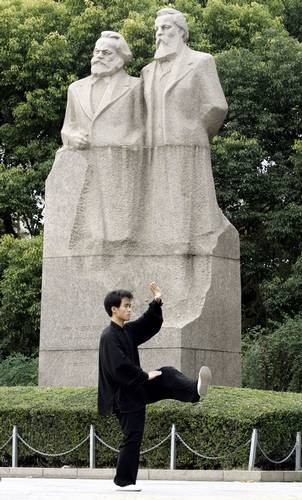I thought I wouldn’t write anything for this Night of Saint Silvestre; it consumes much of my energy and takes me really too much time. But the truth is that, lately, I haven’t been doing a lot with my time or energy, and so here I am trying to put in a few words some thoughts for you, my people out there (and here comes fictionality again), to wish you something for “the year to come” now when we have the illusion that “another year is going away.”
Maybe I have to begin by apologising —in general— for the English. Honestly, I’ve been giving up Spanish, as much as I can, at least for a while… It’s been way too painful for me, and I have this crazy impression that using —thinking, living in— something else helps to get perspective, perhaps. So, I’m truly sorry, but for the moment I’ll be writing mainly in French and English —despite the (obvious) problems they bring along.
As for this so-called “New Year’s Eve”, first I thought I’d be glad seeing 2006 fade away… Then, thanks to the courtesy of the National Geographic Channel (and thanks also to my refusal of doing just anything, whatsoever), I had the pleasure to learn that “only [sic] thirty-five per cent of world population celebrates New Year’s Eve” on December 31st and, of course, I immediately identified this percentage with the planet's Christian population. This was, evidently, an abuse of my part as even if the problem of dates and time tracking certainly has a lot to do with Christianity, the real problem behind it is the Gregorian calendar itself and, hence, the ubiquitous Euro-American domination (I have to state, also, that I've never understood this strange calendars that make the year begin and end in the middle of the winter instead of choosing an equinox or a solstice for that purpose. Though, I can’t help but seeing that the pattern is analogous of that of the twenty-four hour day, which similarly begins and ends in the middle of the night. This leads to another even more interesting pattern reflected in our time experience itself, in long and short periods: winter-night, summer-noon, spring-morning, autumn-evening… which, then, would be much more than simple metaphors). Anyway, seemingly, I can’t say but the obvious.
Indeed, the relative position of the Sun and the Earth today will be the same it was a year before and, therefore, a whole cycle will be complete… just as it will be the day after, and the day after that. The real change is that tomorrow we will be writing a higher number in the calendar position that we use to classify —and some even to count— the year. The arid, somehow useless, and absurd necessity for classification is, at most, understandable, but the counting… We, living in this Christian side of the planet, assume that the counting begins in a fictitious and arbitrary date (which, evidently, does not match the birth-date of Jesus-Christ)… It would have a lot more sense if it was a count-down to some unknown to-come… But beside the bad joke, I consider that in the Gregorian calendar, the gap between the traditional event marking the Calendar’s first year and the current conscience of its arbitrariness challenges all possible magical or even mystical feeling around this date (to-day).
Having said this, have a good year 2007 (I can’t wait for 2008!)… I really don't have the courage —or maybe I’m not hypocrite enough— to hope for anything else. I’m leaving, I’m already late to celebrate nothing, really.
P. S. : I also apologise for the bitter tone... There must be something in the air...


